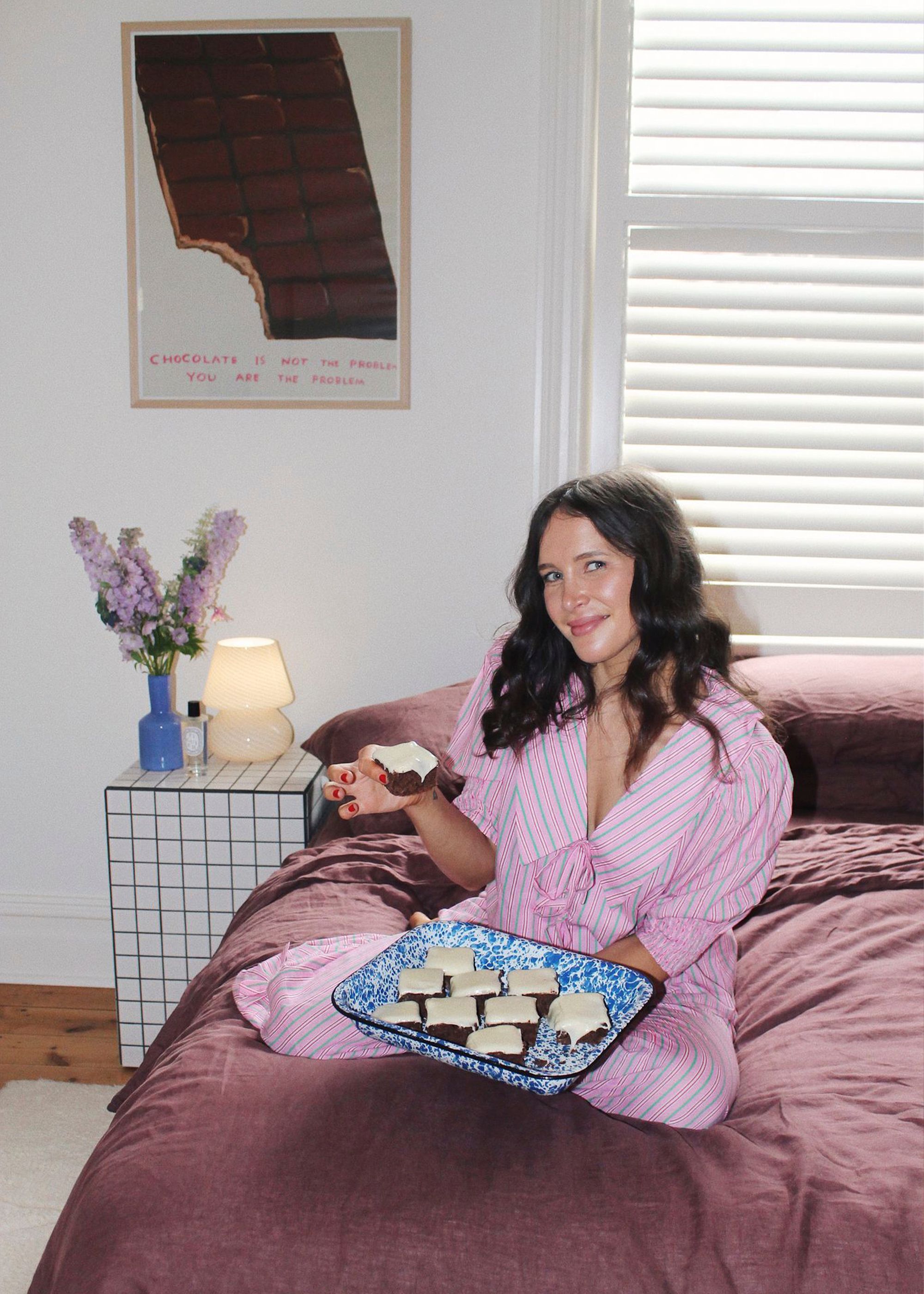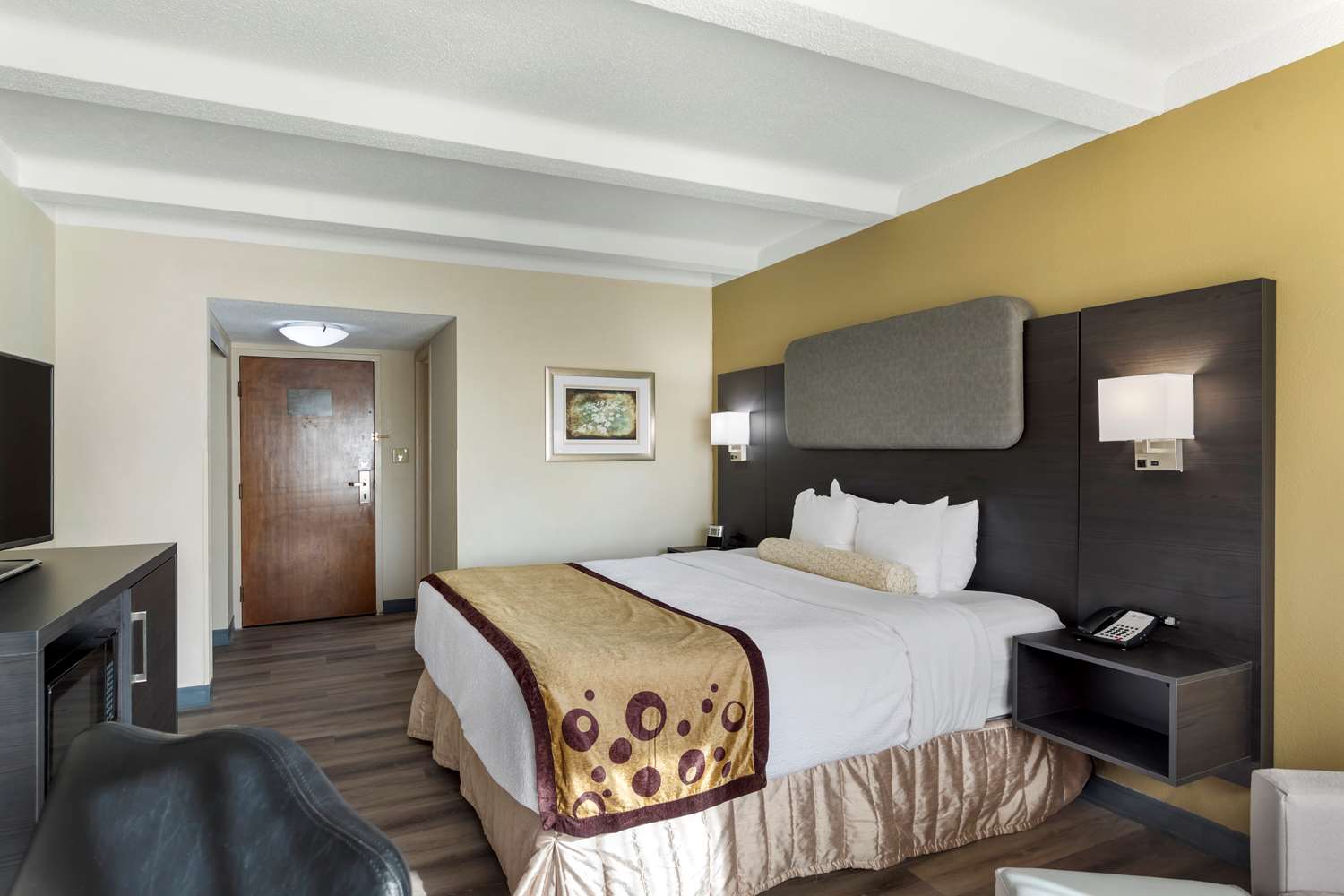Decaf Coffee before Bed: Sleep’s Secret Ally?
Drinking decaf coffee before bed typically doesn’t disrupt sleep. It contains minimal caffeine, reducing the risk of insomnia.
Decaf coffee has long been a go-to evening beverage for those wanting to enjoy the coffee experience without the stimulating effects of caffeine. Despite its decaffeinated label, this coffee variant can contain very low levels of caffeine, which is usually not enough to affect sleep quality for most people.
Reaching for decaf allows coffee lovers to indulge in its comforting warmth and rich taste even late at night. Substituting regular coffee with decaf in the evening is a smart choice for individuals sensitive to caffeine or those who aim to maintain a healthy sleep schedule. Enjoying a cup of decaf coffee before bed can be a soothing ritual that rounds off the day without the worry of unwanted sleep disturbances.

Credit: bedthreads.com.au
Decoding Decaf
Decaf coffee offers a lower-caffeine option for evening brews. It undergoes a process to remove most caffeine content. Several methods exist for decaffeinating coffee. These include using water, organic solvents, or carbon dioxide. Each technique strives to retain the coffee’s flavor while limiting caffeine.
| Drink | Caffeine Content (average) |
|---|---|
| Regular Coffee | 95 mg per 8 oz |
| Decaf Coffee | 2-5 mg per 8 oz |
Despite some caffeine remaining, decaf is much lower than regular coffee. Perfect for those wishing to reduce intake without losing enjoyment. Remember, decaf coffee is not completely caffeine-free. But it is close enough for most who are sensitive or avoiding caffeine at night.
Caffeine’s Effect On Sleep
Caffeine often leads to sleep disruptions. It stimulates the nervous system, making it hard to relax. Coffee drinkers might find it difficult to fall asleep. Even decaf coffee can contain small amounts of caffeine.
Each person’s body reacts differently to caffeine. Some might feel very alert even with a small sip of coffee. Others can have a regular coffee and still sleep well. People with sensitivity should avoid caffeine close to bedtime.
Having decaf does not always mean it’s completely caffeine-free. It’s usually lower, but still there. Checking how much caffeine is in your decaf coffee is smart. This helps to ensure a good night‘s sleep.
The Science Of Sleep
Decaf coffee before bed is often chosen to avoid disrupting sleep. Understanding sleep stages is crucial for recognizing how decaf may affect rest.
- Stage 1: Transition from awake to asleep.
- Stage 2: Light sleep before deeper stages.
- Stages 3 & 4: Deep sleep, crucial for feeling rested.
- REM sleep: Brain is active, dreams occur.
Each stage is essential for a refreshing sleep. A good sleep hygiene supports the transition through these stages. It includes consistent sleep schedules and a comfortable sleeping environment. Drinks like decaf coffee should align with a healthy bedtime routine to not hinder the sleep cycle.

Credit: www.bestwestern.fr
Decaf As A Nighttime Ritual
Decaf coffee before bed can be a soothing ritual for many people. Sipping a warm beverage provides psychological comfort, similar to a warm hug. It makes us feel cozy and safe. This feeling helps us prepare for sleep.
Drinking decaf doesn’t affect sleep like regular coffee. It has little to no caffeine. Caffeine can disturb our sleep cycles. So, decaf is a better choice before bedtime. It helps maintain good sleep hygiene. Good sleep hygiene means habits that give us sound sleep.
| Decaf Coffee | Benefits |
|---|---|
| Evening Drink | Offers comfort without disturbing sleep |
| Psychological Effect | Feels like a warm hug, aiding relaxation |
| Sleep Hygiene | Supports sound sleep without caffeine |
Potential Benefits Of Decaf
Drinking decaf coffee before bed may lead to lower anxiety levels. Anxiety often makes it hard to sleep. Decaf coffee lacks caffeine, a known trigger for anxiety. This makes it a good choice for a calming pre-bedtime drink.
Another plus point is its antioxidant properties. Antioxidants are like your body’s best friends. They fight harmful particles called ‘free radicals’. Even without caffeine, decaf coffee still keeps these good antioxidants. This means it can possibly keep you healthy while helping you relax.
Are There Drawbacks?
Many people enjoy decaf coffee before bed, believing it’s free from caffeine. Decaf does not mean caffeine-free. A standard decaf coffee can contain 2 to 5 milligrams of caffeine. The choice of decaf coffee matters for sound sleep. Selecting a brand with minimal caffeine levels is crucial.
| Decaf Coffee Brand | Residual Caffeine Content |
|---|---|
| Brand A | 3mg per cup |
| Brand B | 5mg per cup |
| Brand C | 2mg per cup |
Children and sensitive individuals might be more affected by these low levels. Always check the label for caffeine content. Consult with a professional to choose the best decaf for you. Certifications like ‘Swiss Water Process’ ensure no chemicals are used and less caffeine is present.
Real People, Real Sleep
Many individuals enjoy decaf coffee before sleep. They feel it helps them relax. Drinking decaf doesn’t mean zero caffeine. A small amount of caffeine can still affect sleep.
People have shared experiences of better rest. No jittery side effects and quieter minds are common points. Yet, some report no change in their sleeping patterns.
| Sleeper Type | Decaf Coffee Impact |
|---|---|
| Light Sleepers | Minor improvements |
| Average Sleepers | Varied responses |
| Deep Sleepers | Little to no change |
- Peaceful evenings from a warm cup.
- Unbroken sleep for some, not all.
- Deeper relaxations, as reported by a few.

Credit: www.amazon.com
Frequently Asked Questions On Decaf Coffee Before Bed
Does Decaf Coffee Affect Sleep Quality?
Decaf coffee generally contains minimal caffeine, which is a stimulant known to disrupt sleep. However, even the small amount of caffeine in decaf can affect those sensitive to it. Drinking decaf coffee before bed may still impact your ability to fall asleep or stay asleep if you’re sensitive to caffeine.
Can Decaf Coffee Cause Insomnia?
While decaf coffee has substantially less caffeine than regular coffee, it’s not completely caffeine-free. For some individuals, this residual caffeine can still lead to difficulties falling asleep and thus, potential insomnia, especially if consumed close to bedtime.
Is Decaf Coffee Good For Health Before Bed?
Decaf coffee can be a comforting, low-caffeine beverage to enjoy before bed. It lacks the higher caffeine levels that might disrupt sleep while providing some antioxidants. However, the health effects depend on the individual and how their body reacts to even small amounts of caffeine.
How Much Caffeine Is In Decaf Coffee?
Decaf coffee typically has about 97% of its caffeine removed, which means an 8-ounce cup contains around 2 to 5 milligrams of caffeine. In contrast, regular coffee usually contains 70 to 140 milligrams of caffeine per cup, making decaf a lower-caffeine alternative.
Conclusion
As we’ve explored, decaf coffee is a comforting pre-sleep beverage for many. Its minimal caffeine content allows for a warm, soothing ritual without disrupting rest. Embracing decaf could enhance your night-time routine, promising a peaceful transition to a good night’s sleep.
Choose decaf tonight and experience the difference it makes in your slumber quality. Sweet dreams and joyful sips to all!
